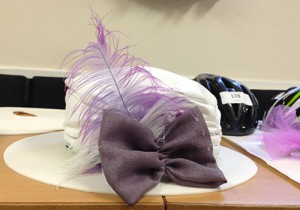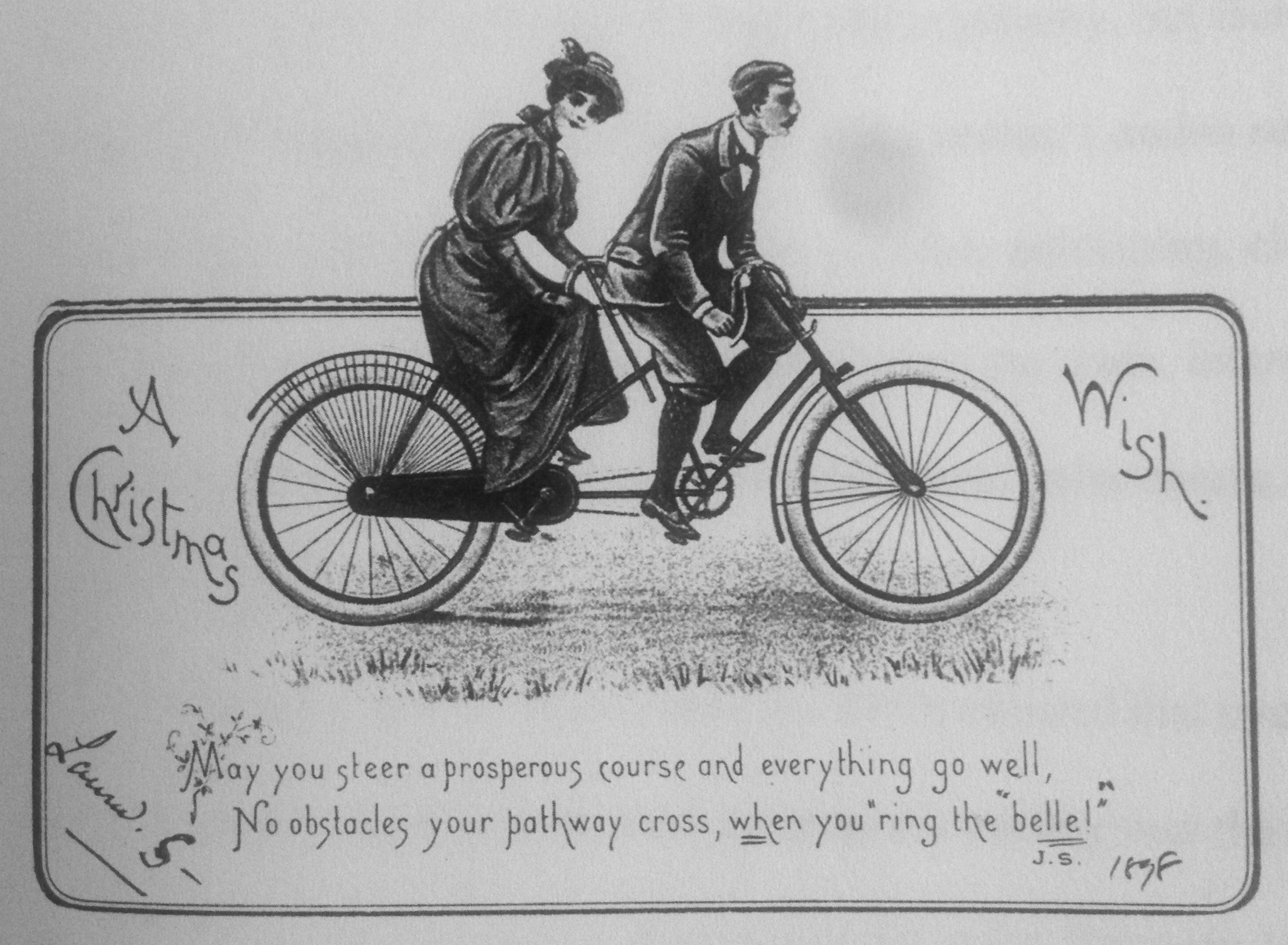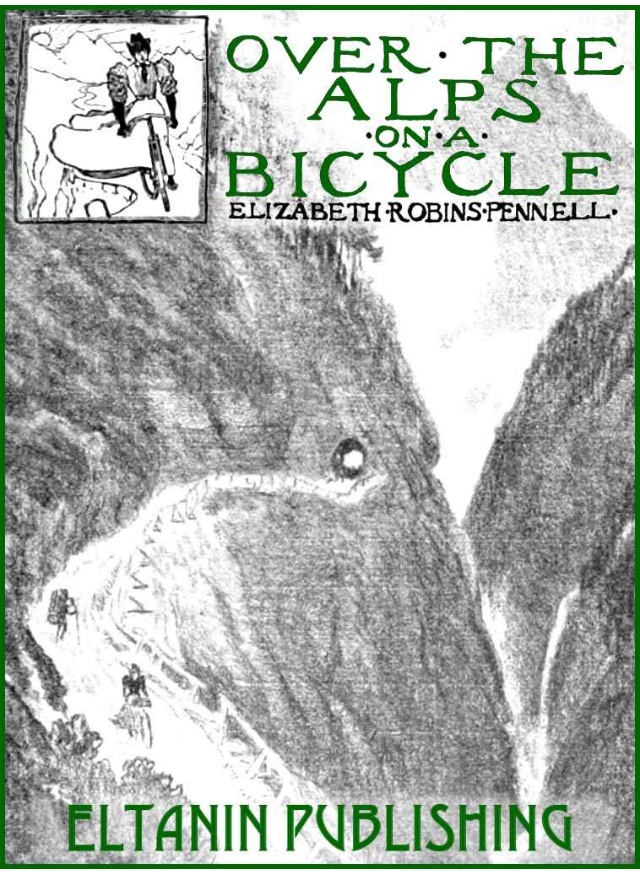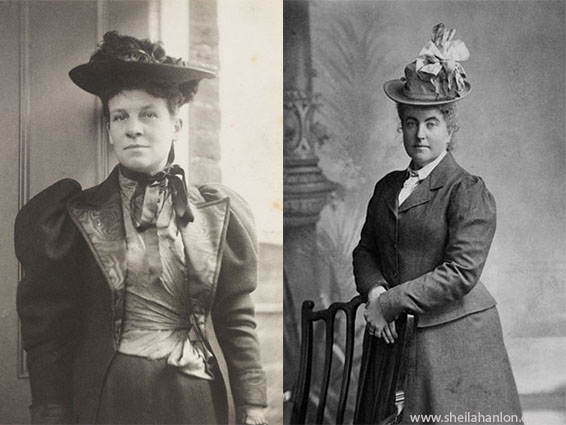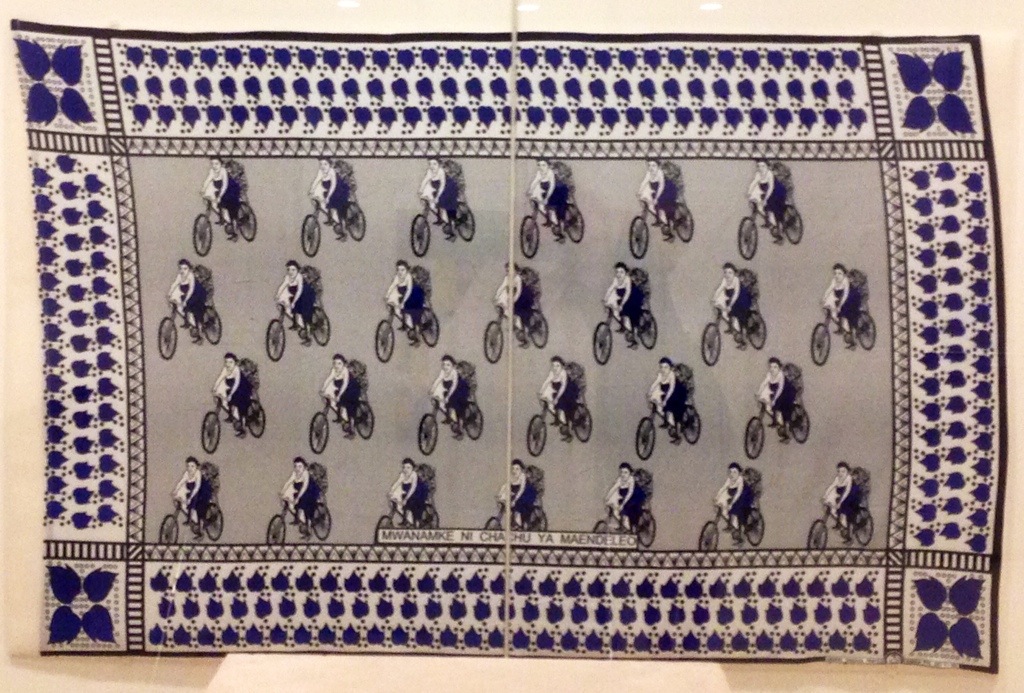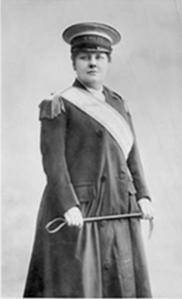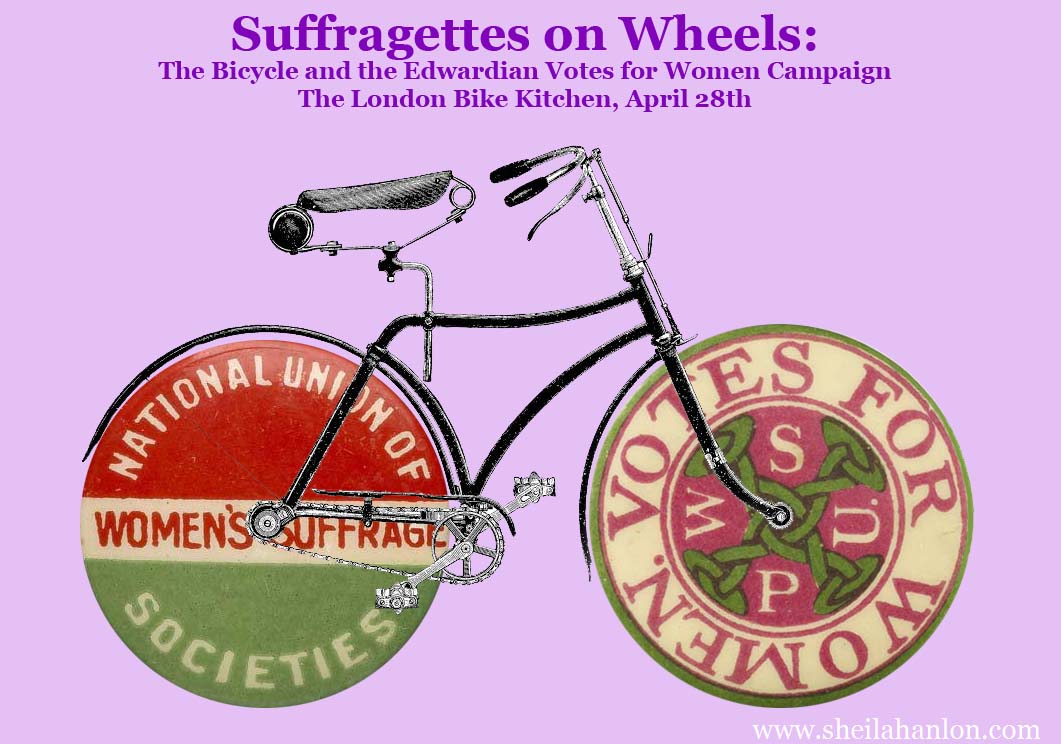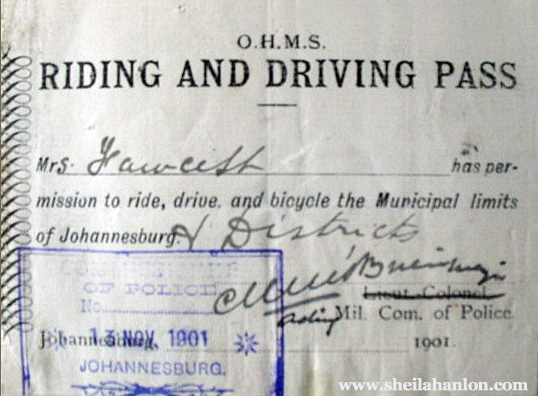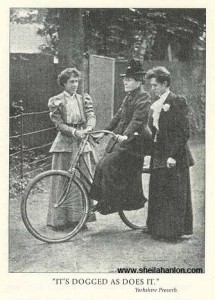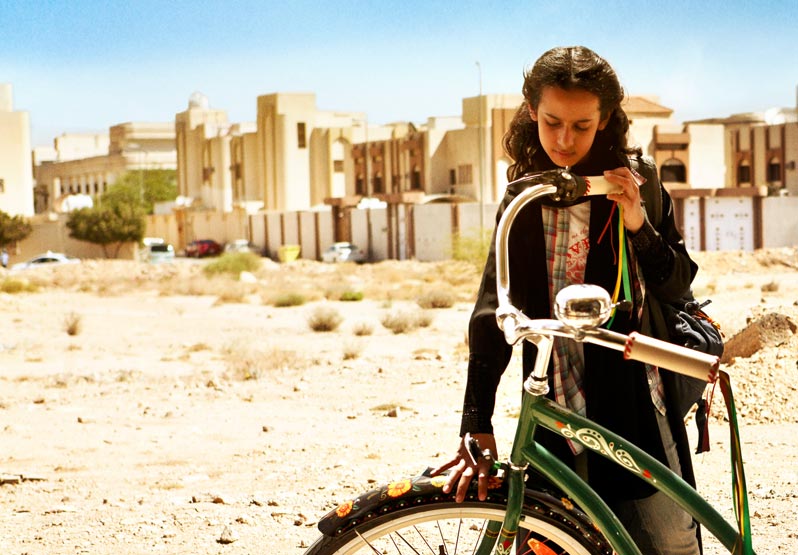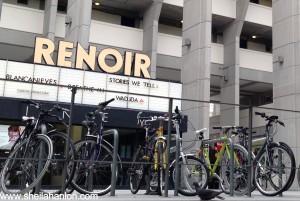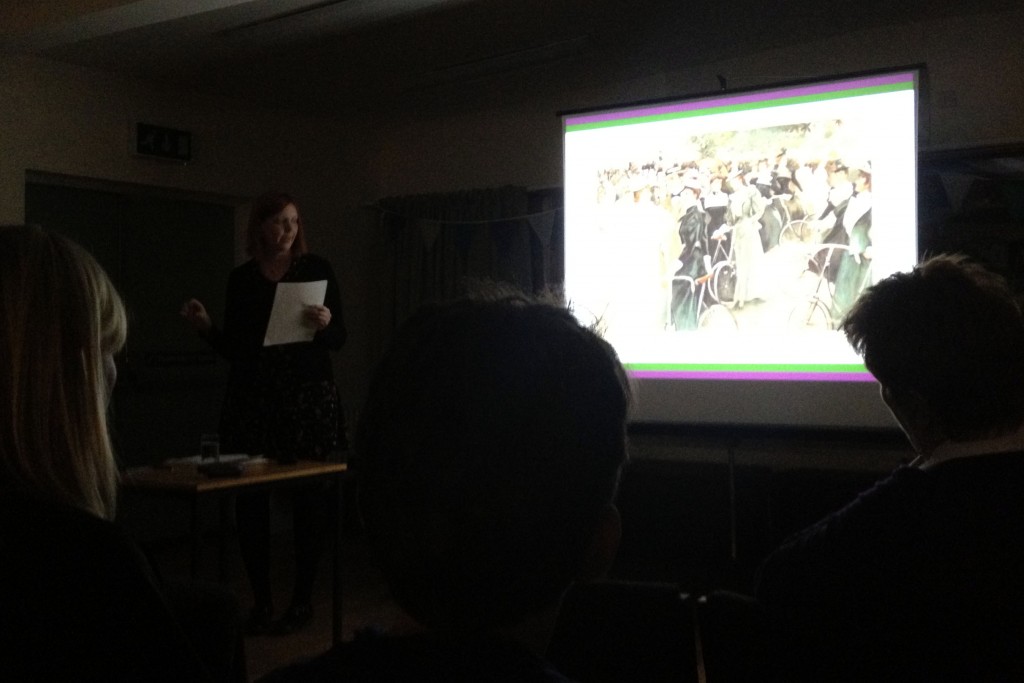June 2013 marks 100 years since WSPU campaigner Emily Wilding Davison was fatally injured at the Epsom Derby. Much has been made of the centenary in the press and women’s communities, but questions remain about the circumstances surrounding Emily’s last act of defiance. Public interest in Emily has been unprecedented–matched only by that of the suffrage era when she became the first ‘Votes for Women’ martyr.
You can find more about Emily in the many articles that have flooded the press in the last few weeks. A quick google search will leave you with more links than you can shake a suffragette banner at. One thing shared across recent coverage is speculation about that century old question: what was Emily’s exact intent when she snuck under the barrier at the Tattenham Corner and intercepted the kings horse?
Of note among recent coverage is Martin Pugh’s History Today article, “Emily Wilding Davison: The Good Terrorist”, which offers an exacting account of the Davison case and the reaction to it. June Purvis’s editorial in Women’s History Review, “Remembering Emily Wilding Davison (1872-1913)” reflects on Emily’s character, motivation and activism, providing insights that may help understand what happened on that fateful derby day. Clare Balding’s documentary Secrets of a Suffragette is well worth viewing, particularly for its forensic analysis of the film footage showing Emily’s accident. Highlights from The Women’s Library material related to Emily now held at LSE is available to browse in an online exhibit. For a local history perspective, see Morpeth based genealogist Maureen Howes’ book Emily Wilding Davison: A Suffragette’s Family Album. You can also read how the Guardian reported Emily’s death in 1913 on their From the Archives blog.
Two centennial weekends are planned for mid June; The Wilding Festival June 13-16 in Bloomsbury, which Emily would have known well as a London based WSPU campaigner and the Emily Inspires Centennial Weekend June 13-15 centred up North in Morpeth where Emily’s family lived and where her final resting spot was to be.
The Morpeth based Emily Inspires project has spearheaded a host of Davison memorial projects ranging from suffragette teas and banner making workshops, to writing and drawing competitions, to an oral history project involving local school children. Kate Willoughby’s new play exploring critical moments and relationships in Emily’s life, To Freedom’s Cause, premieres in Morpeth June 14th. Morpeth Town Hall will have rare artefacts on view, including Davison family treasures and the WSPU scarf believed to be the one Emily tried to throw over the king’s horse, in an exhibit called “Northumberland’s Lawless Lassie.”
Cycling will play a major role in how Emily’s life and politics are celebrated in Morpeth. As part of “Bikes and Bonnets” a band of 100 cyclists, one to mark each year since Emily’s fatal accident at the Epsom Derby, will trace the route from her mother’s house in the village of Longhorsley to Morpeth. Local artist Elaine Porter has designed Edwardian hats, cleverly constructed to be fit over bike helmets, for the ride.
I will be delivering a series of talks on the subject of suffrage and cycling, linking the two together and exploring the place of the bicycle in the lives of women like Emily and her suffragette sisters. Though details of Emily’s personal life are difficult to uncover, we know that she was a keen cyclist who used her bicycle in both London and Northumberland.
“Suffragettes on Wheels: The Bicycle and the Emancipation of women in Edwardian Britain” talks take place on the following days:
May 29 Longhorsley Village Hall, 7:00
June 14 North of England Mining and Mechanical Engineers Institute, Newcastle, 7:00 pm
June 15 Morpeth Town Hall, 1:00
The talks are free, and last about one hour inclusive of a Q&A session.
I hope to see you at a talk or on the Bikes and Bonnets bike ride!
